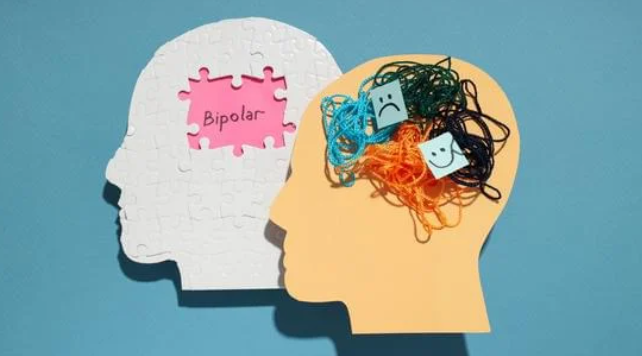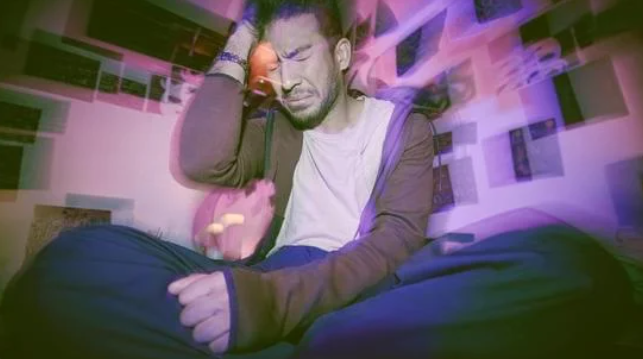
Struggling to understand why people with bipolar I disorder are more likely to use drugs like cocaine? Families, patients, and even providers often wonder why these two issues so often collide.
In fact, research shows that 40–60% of people with bipolar disorder will also battle a substance use disorder at some point, and cocaine use is especially common. This overlap isn’t random, from brain chemistry and genetic risk to real-world stressors, the reasons are clear and alarming.
In this article, you’ll learn why bipolar I disorder and cocaine use are so closely linked, plus what treatment strategies (like integrated care, therapy, and medication) actually work.
Whether you’re coping with bipolar symptoms yourself or supporting someone who is, this guide will help you understand the “why” and see the “how” for getting real, effective help.
5 Troubling Statistics About Bipolar Disorder and Substance Use
Lifetime substance use disorder rates reach 40-60% in bipolar populations, far exceeding rates in people without mood disorders.
While exact cocaine use prevalence varies by study, the pattern is consistent: people with bipolar I disorder try cocaine and other stimulants at much higher rates than expected.
This isn’t just a statistical curiosity. Comorbid substance use is associated with poorer courses of bipolar illness:
- Earlier onset
- More frequent mood episodes
- Greater suicidality
- Increased hospitalizations
- Worse functional outcomes.
Why Do Cocaine’s Effects Resemble Mania?
One key reason involves the striking similarity between cocaine’s effects and manic symptoms.
Cocaine produces rapid euphoria, increased energy, heightened alertness, decreased need for sleep, and enhanced confidence effects that can feel remarkably similar to the elevated mood and energy of mania.
For someone experiencing bipolar depression, cocaine might seem like a quick fix. The drug can temporarily counteract the psychomotor slowing, anhedonia, and low energy that characterize depressive episodes.
During manic phases, cocaine’s reward effects might align with the heightened pleasure-seeking and reduced risk perception that define mania.
What Makes People With Bipolar More Vulnerable?
The neurobiological explanation centers on reward circuits in the brain. Cocaine blocks dopamine transporters, leading to elevated dopamine in reward pathways that control motivation and pleasure. These same circuits are dysregulated in bipolar disorder.
Bipolar I involves heightened reward responsiveness during mania and blunted reward signals during depression.
This creates a perfect storm: people with bipolar disorder may have exaggerated responses to rewarding substances like cocaine, combined with weakened prefrontal control over impulsive decisions.
The impulsivity factor is crucial. Bipolar I is associated with elevated trait impulsivity and episodic lapses in inhibitory control, particularly during manic episodes. When the brain’s “brakes” aren’t working well, the immediate appeal of cocaine’s effects becomes harder to resist.
How Does Self-Medication Backfire?
Many people with bipolar disorder describe using cocaine to manage specific symptoms, a pattern researchers call self-medication.
Clinical interviews show that mood improvement and functional enhancement are common reasons for stimulant use among those with mood disorders.
The cruel irony is that while cocaine might provide short-term relief, it typically worsens long-term outcomes.
Substance-based self-treatment often leads to worse mood instability and increased cycling rather than sustained improvement.

Could Genes Explain the Connection?
Research reveals shared genetic risk factors between bipolar disorder and substance use problems.
Twin and family studies indicate shared genetic contribution between mood disorders and substance use phenotypes. Some people inherit a general vulnerability to both mood instability and substance misuse.
Genome-wide association studies have identified overlapping genetic risk between mood disorders and substance use traits.
These genetic influences often work through intermediate traits like impulsivity, novelty-seeking, and reward sensitivity.
How Do Environment and Systems Failures Add Fuel?
Genetics aren’t destiny, environmental factors also matter. People with bipolar I often experience socioeconomic disruption, homelessness, or involvement in social networks where substance use is common, increasing exposure to drugs like cocaine.
Treatment system failures also contribute. Gaps in access to timely, integrated mental health and substance use care leave people struggling with untreated symptoms that cocaine might temporarily mask.

When Cocaine Makes Everything Worse?
The relationship between bipolar disorder and cocaine use is bidirectional. Not only might bipolar symptoms drive cocaine use, but cocaine use can precipitate manic or mixed episodes and complicate diagnosis and treatment.
Comorbid cocaine use increases impulsivity, risk-taking, and physiological risks including cardiovascular events. It’s also associated with higher rates of suicidality in mood disorder populations.
What Treatments Actually Work?
The good news is that effective treatments exist, though they require an integrated approach. Evidence supports treating mood stabilization and substance use concurrently rather than separately.
Contingency management:
Providing tangible incentives for verified abstinence is among the most consistently effective interventions for stimulant use disorders. Combined with cognitive-behavioral therapy and motivational interviewing, these approaches can be adapted for people with bipolar disorder.
For medications:
Evidence-based mood stabilizers like lithium and valproate remain central for reducing mood symptoms and suicide risk. Stabilizing mood can reduce one major driver of cocaine use. There is currently no FDA-approved medication specifically for cocaine use disorder, making behavioral interventions even more important.
Why Does This All Matter?
Understanding why people with bipolar I disorder are drawn to cocaine isn’t about judgment, it’s about developing better prevention and treatment strategies.
The overlap between manic symptoms and cocaine effects, combined with genetic vulnerability and environmental factors, creates a perfect storm of risk.
The path forward requires integrated care that addresses both conditions simultaneously, better access to evidence-based treatments like contingency management, and continued research into medications that could help break the cycle.
Most importantly, it requires recognizing that for many people with bipolar disorder, cocaine use represents a misguided attempt to manage overwhelming symptoms rather than simple recreational drug use.
By addressing the underlying vulnerabilities and providing comprehensive, integrated treatment, we can help people with bipolar disorder find healthier ways to manage their symptoms and reduce their risk of cocaine use and its devastating consequences.
Got it, let’s trim it down. How about this for a more concise conclusion with a clear call to action?
Conclusion
The strong link between bipolar I disorder and cocaine use stems from a complex interplay of brain chemistry, genetics, and environmental factors. While cocaine might offer fleeting relief, it ultimately intensifies mood instability and health risks.
Effective, integrated treatment that addresses both conditions simultaneously is crucial for recovery. This includes mood-stabilizing medications, therapy, and behavioral interventions like contingency management.
If you or a loved one are navigating bipolar disorder and cocaine use, seek professional help specializing in dual diagnosis care today. At Thoroughbred Mental Health Care, our team specializes in supporting individuals facing both bipolar disorder and substance use challenges. Call us or visit our website to find stability and build a healthier future.









